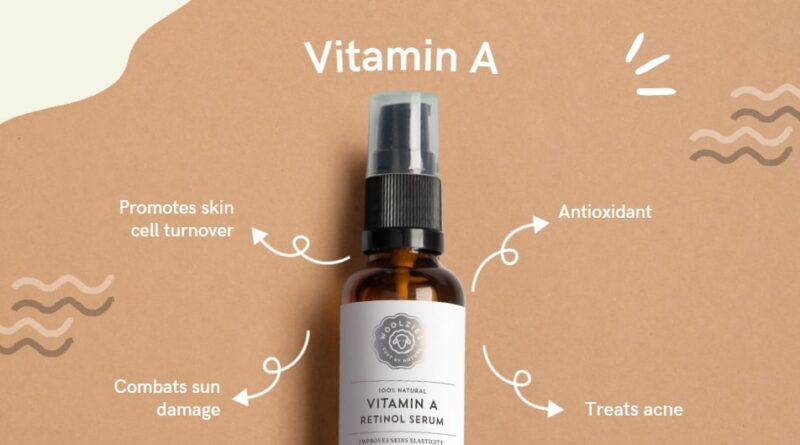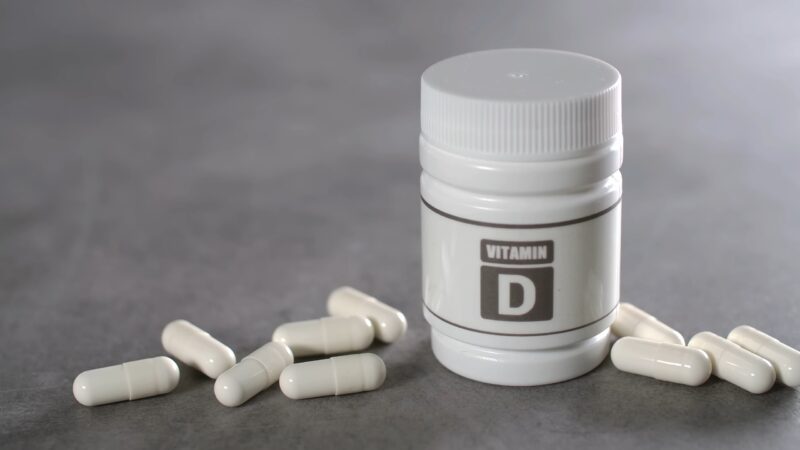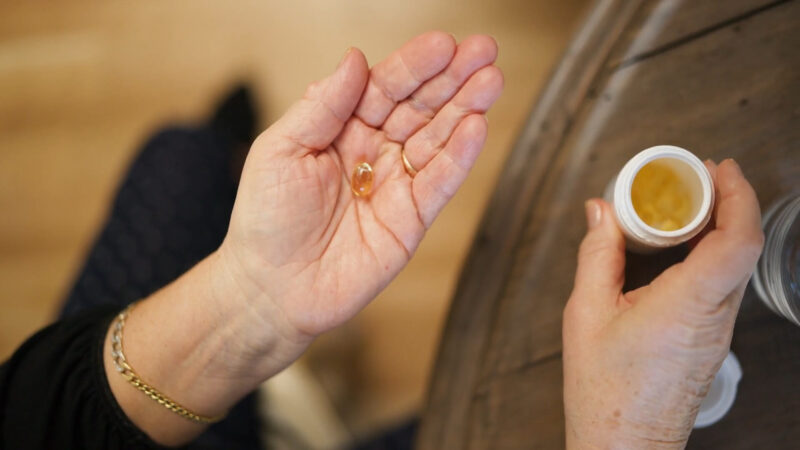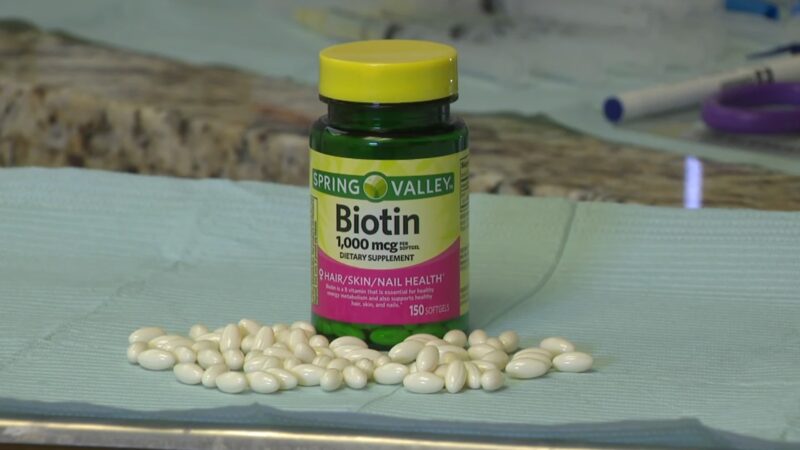Healthy skin, on the surface, indicates someone is taking care of his or her skin. However, it is also an indicator of overall well-being. The skin, being the largest organ of the body, serves as a protective barrier against environmental pollutants, regulates body temperature, and plays a crucial role in immune function.
Achieving and maintaining healthy skin is a multifaceted process that involves a healthy lifestyle, proper skincare routines, and, importantly, a diet rich in essential vitamins and micronutrients.
These nutrients are pivotal in supporting cell growth, repairing damaged skin, regulating oil production, and protecting the skin from UV damage and inflammation. Arming your skin with enough vitamins is pivotal in keeping it healthy.
That is why we want to talk about the best ones out there.
Key Takeaways:
- Vitamins A, C, D, E, and K are essential for maintaining healthy skin.
- These vitamins support cell growth, repair damaged skin, regulate oil production, and protect against UV damage and inflammation.
- Omega-3 fatty acids, Zinc, and Biotin also play crucial roles in skin health.
1. Vitamin A

Vitamin A is the most important vitamin for skin health, functioning as an antioxidant that mitigates sun damage and fortifies the epidermis. Its role extends to promoting skin cell turnover, making it invaluable in treating conditions like acne, hyperpigmentation, and fine lines.
| Aspect | Details |
|---|---|
| Function | Antioxidant, promotes skin cell turnover, combats sun damage, treats acne, hyperpigmentation, and fine lines. |
| Common Form | Retinol (topical application) |
| Benefits | Accelerates renewal of skin cells, enhances skin resilience against environmental damage, stimulates collagen production. |
| Application Tips | Start with lower concentrations, apply every other night, be patient for results, avoid morning application to reduce sun sensitivity. |
2. Vitamin C

Vitamin C is known not only for its potent antioxidant properties but also for its pivotal role in collagen synthesis. By enhancing the effectiveness of sunscreen, it offers an added layer of protection, safeguarding the skin from potential damage and premature aging.
The abundance of Vitamin C in both dietary sources and skincare formulations makes deficiencies uncommon, yet the strategic inclusion of this vitamin in one’s skincare regimen can yield transformative results.
Topical applications, particularly through serums and creams enriched with Vitamin C, are highly effective in targeting and diminishing hyperpigmentation. These formulations work meticulously to brighten the skin, promoting a more uniform and radiant complexion.
The consistent use of Vitamin C-infused products can significantly improve skin texture, reduce the appearance of dark spots, and contribute to an overall brighter, more even skin tone.
3. Vitamin D

Vitamin D plays a critical role in skin health and overall well-being. Its unique ability to be synthesized through sunlight exposure makes it a vital nutrient for maintaining an even skin tone and supporting the treatment of skin conditions such as psoriasis.
| Source/Method | Benefits | Considerations |
|---|---|---|
| Sunlight Exposure | Natural production of Vitamin D | Risk of sun damage; use sunscreen |
| Dietary Sources | Fatty fish, egg yolks, fortified foods | Accessible year-round |
| Supplements | Consistent Vitamin D levels | Dosage should be tailored to individual needs |
| Topical Treatments | Alleviates psoriasis symptoms | Primarily for specific skin conditions |
4. Vitamin E
Vitamin E is best described as a guardian against the harsh effects of environmental stressors on the skin, particularly UV radiation. Its ability to absorb UV light is a key defense mechanism, helping to prevent the sun-induced damage that accelerates skin aging and increases the risk of skin cancer.
This vitamin is not just an external shield; it plays an integral role internally, produced naturally in the body through sebum. This oily substance is more than just a lubricant; it forms a vital part of the skin’s moisture barrier, locking in hydration and keeping the skin supple and resilient.
For individuals grappling with dry skin, Vitamin E emerges as a crucial ally. Its moisturizing properties make it a popular ingredient in skincare formulations, where it’s applied topically to nourish and hydrate the skin deeply.
The benefits of Vitamin E extend beyond mere hydration. It possesses remarkable healing properties, making it effective in treating a range of skin issues, from minor burns and scars to more significant wounds. By promoting the skin’s natural healing process, Vitamin E helps to restore the skin to its original state, preserving its texture and integrity.
5. Vitamin K

Vitamin K is often overshadowed by its more famous vitamin counterparts. Its primary function in the blood clotting process is not just crucial for internal health but also has significant implications for the skin, particularly in healing and recovery.
When applied topically, Vitamin K proves to be a powerful agent in minimizing swelling, bruising, and the appearance of dark circles, especially noticeable after surgical procedures. This ability to enhance the skin’s healing process makes it a valuable component in post-operative care, helping to speed up recovery and improve cosmetic outcomes.
Despite the rarity of Vitamin K deficiencies, ensuring an adequate intake of this vitamin is beneficial for maintaining skin health and facilitating recovery from injuries or surgeries. Consuming Vitamin K-rich foods is a straightforward strategy to achieve this.
Leafy greens such as kale and spinach, along with vegetables like green beans, are excellent sources of Vitamin K. These foods not only contribute to the skin’s healing abilities but also support overall health and well-being.
Additional Nutrients for Skin Health
Micronutrients such as Omega-3 fatty acids, Zinc, and Biotin are instrumental in maintaining the skin’s integrity, moisture, and overall appearance. These nutrients work synergistically to fortify the skin’s barrier, enhance hydration levels, and mitigate inflammation, all of which are crucial for a healthy, glowing complexion.
Omega-3 Fatty Acids

Omega-3 Fatty Acids are essential fats that the body cannot produce on its own, making their dietary intake crucial. Found abundantly in fish like salmon and mackerel, as well as in flaxseeds and walnuts, Omega-3s are known for their powerful anti-inflammatory properties.
They play a critical role in cell membrane health, which directly impacts the skin’s ability to hold water, thereby providing a plump, hydrated appearance. Moreover, Omega-3 fatty acids can reduce the skin’s sensitivity to harmful UV rays, potentially lowering the risk of sun-induced aging and skin cancer.
Zinc

The next one is Zinc. It is a trace mineral with potent antioxidant and anti-inflammatory properties, making it a key player in skin health. It contributes to the maintenance and functioning of the skin’s oil-producing glands (sebaceous glands), and its anti-inflammatory effects are beneficial for acne-prone skin.
Zinc also supports the skin’s healing process, speeding up the recovery from cuts, abrasions, and other skin injuries. Foods rich in Zinc include oysters, beef, pumpkin seeds, and lentils. Ensuring adequate Zinc intake can help maintain clear skin, reduce breakout occurrences, and promote efficient wound healing.
Biotin

Biotin is another critical nutrient for skin health, primarily known for its role in fat metabolism, which is essential for maintaining the skin’s health.
Biotin deficiency can lead to a variety of skin problems, including rashes, acne, and dry, itchy skin. This vitamin is also vital for the production of keratin, a protein that constitutes the structure of the skin, hair, and nails, contributing to their strength and resilience.
Biotin can be found in foods such as eggs, almonds, spinach, and sweet potatoes. Incorporating these foods into your diet can help ensure your skin remains healthy and vibrant.
FAQs
How can I improve my skin quality?
To improve your skin quality, focus on maintaining a balanced diet rich in vitamins and antioxidants, stay hydrated, follow a consistent skincare routine tailored to your skin type, protect your skin from the sun with SPF, and ensure you get enough sleep and manage stress effectively.
How can I get glowy skin?
Achieving glowy skin involves hydrating both internally and externally, using gentle exfoliants to remove dead skin cells, incorporating brightening skincare ingredients like Vitamin C, and ensuring your skin is well-moisturized with products that suit your skin type.
Is Banana good for the skin?
Yes, bananas are good for the skin. They are rich in vitamins A, B, and E and potassium, which help in moisturizing and hydrating the skin, improving skin elasticity, and combating premature aging. Applying mashed banana as a face mask can also nourish and revitalize dry skin.
How can I improve my skin in a week?
Improving your skin in a week can be achieved by drinking plenty of water, getting adequate sleep, eating a healthy diet rich in fruits and vegetables, cleansing and moisturizing daily with suitable products, and using a gentle exfoliator to remove dead skin cells.
The Bottom Line
Adding Vitamins A, C, D, E, and K into both dietary and skincare routines is indispensable for achieving and maintaining healthy, glowing skin.
These vitamins offer a spectrum of benefits from antioxidant protection, moisture retention, to enhanced healing and reduced inflammation.

